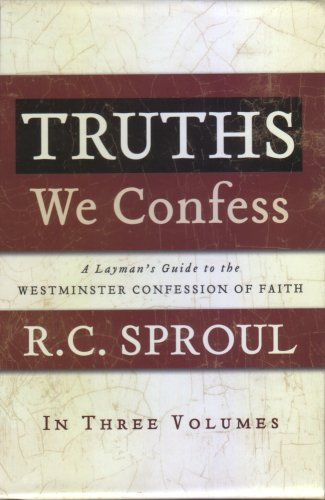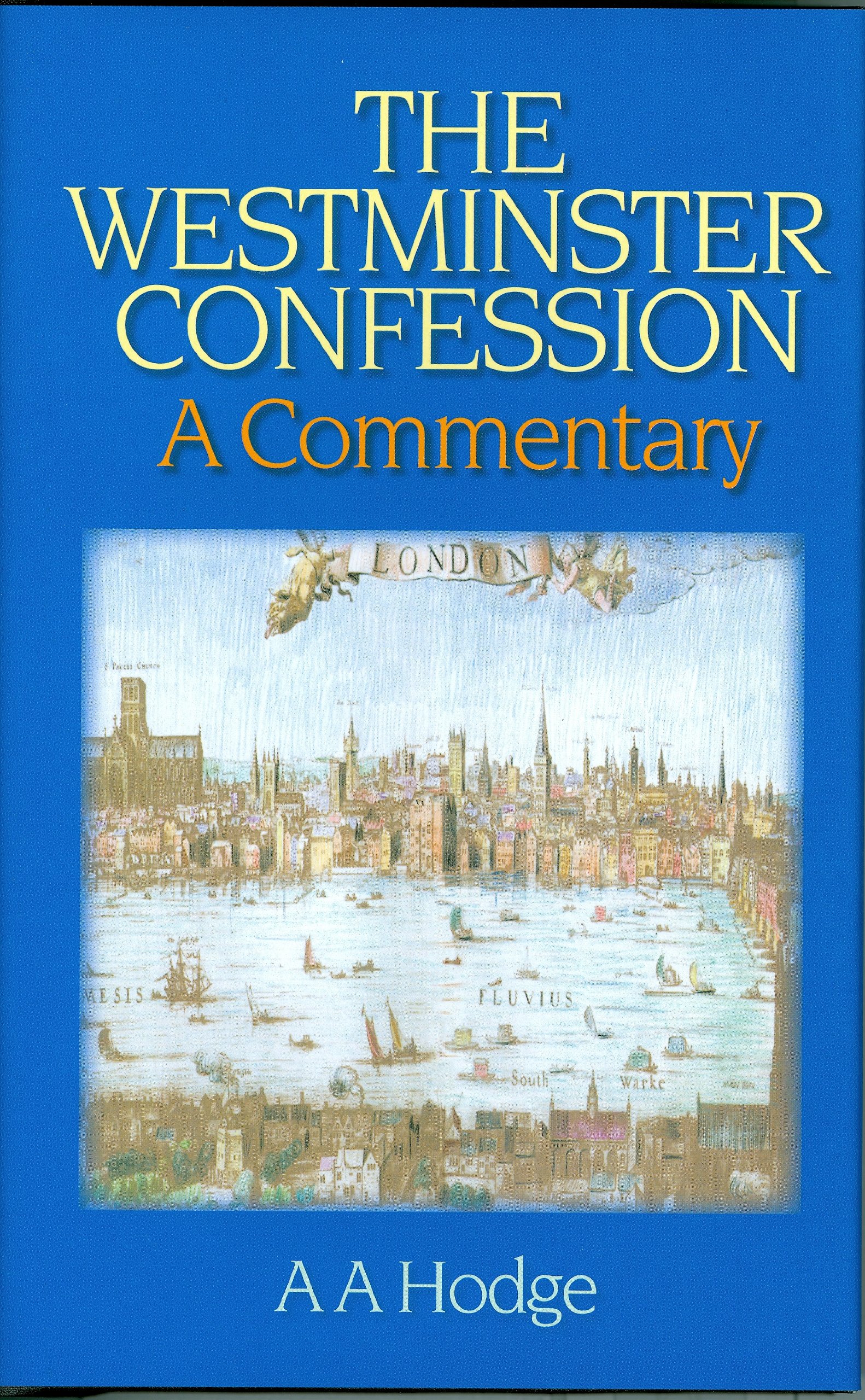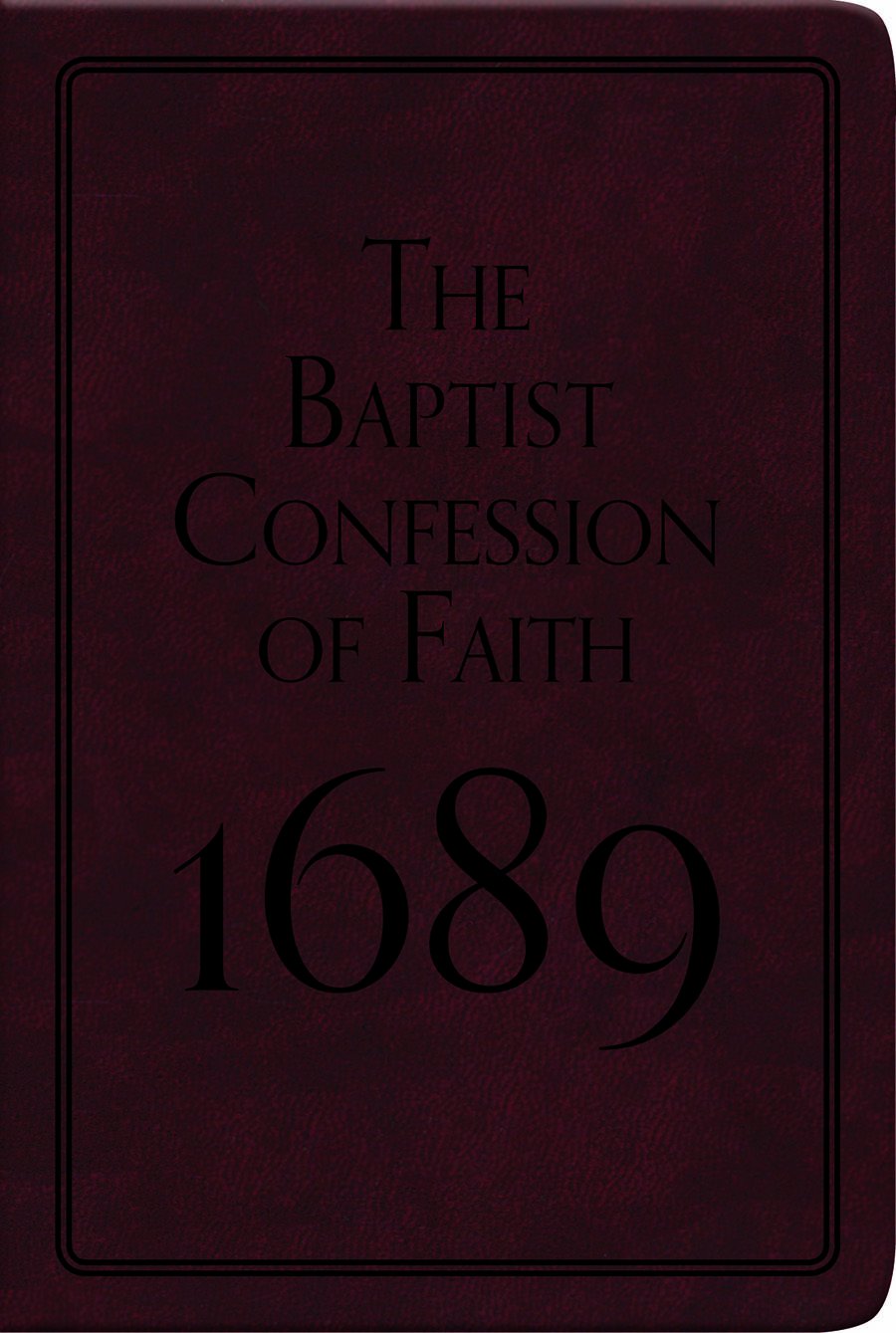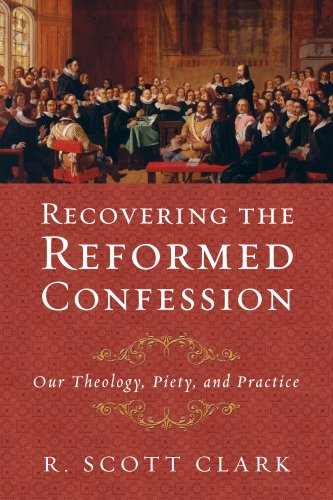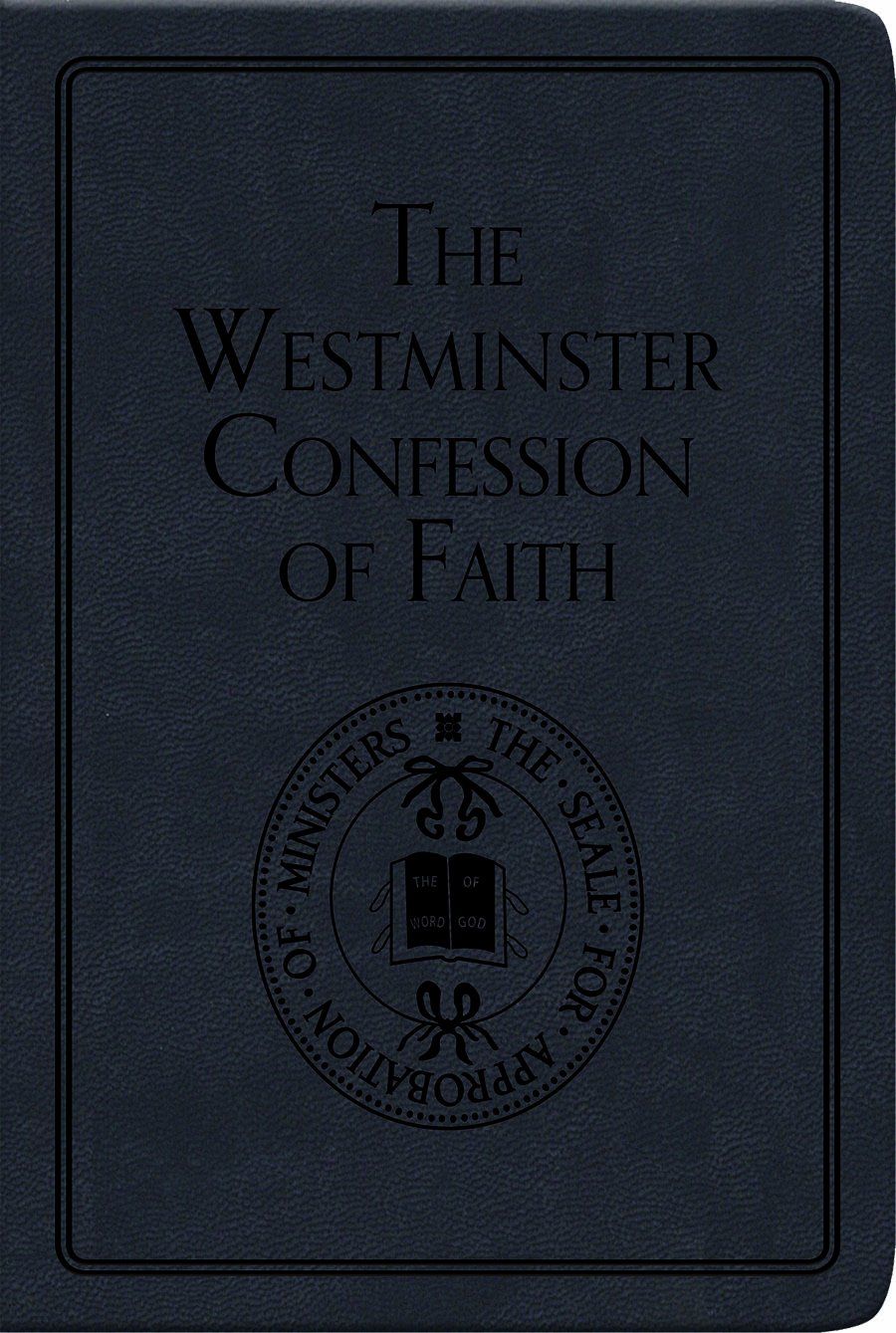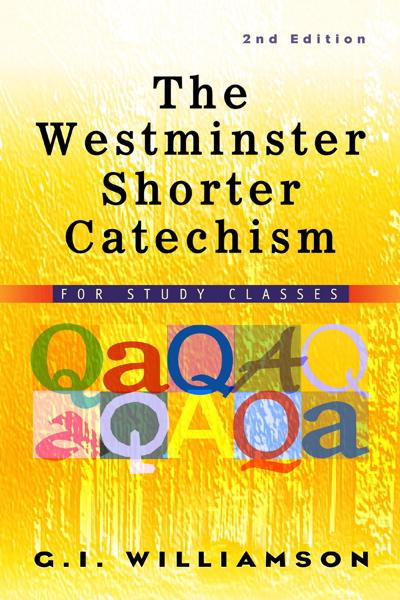‘No pygmies contended there. It was a battle of Titans…. They resorted to no quibbles, or sophistries, or intrigues, inside or outside of the Chamber, to gain their ends. They drew their weapons from the Word of God, and wielded them with a skill and mastery which the opposition…, could not overcome.'[1]… ‘There were never, perhaps, men of holier lives than the generality of the Puritans and Nonconformists of this period. Their piety and devotedness to God were very remarkable. Their ministers made considerable sacrifices for God and religion. They spent their lives, in sufferings, in fastings, in prayers, in walking closely with God in their families, and among their people who were under their pastoral care, in a firm adherence to their principles, and in a series of unremitted labors for the good of mankind. They were indefatigably zealous in their Master’s service.‘ – James D. Moffat and James Reid [2]
Introduction
The Bible adeptly blends precept and example in its communication of the Christian faith. As the Westminster Shorter Catechism says, ‘The Scriptures principally teach what man is to believe concerning God and what duty God requires of man.’ In doing so, the Scriptures not only set forth doctrines, but also lay before us lives of people who illustrate what pleases or displeases the triune God. Above all, of course, we have the life of our Lord Jesus Christ himself. But the Bible gives us also those who, by the gracious work of the Holy Spirit, reflect Christ. Paul can say, ‘Follow my example, as I follow the example of Christ.’ Think of the gallery of Old Testament examples of faith presented in Hebrews chapter 11.
Just as it is profitable to learn from the examples in the Bible of Abraham, Moses, Samuel, and David, Mary, John, Peter, and Paul, so too we can benefit from those who have gone before us in church history. It is helpful to have, along with a grasp of the doctrines of the faith, some heroes of the faith as well, who can provide us models of the Christian faith as it applies to life. Such we have in abundance among the participants in the Westminster Assembly. My topic is ‘The Men and the Parties.’
I. The Parties
Discussions of the Assembly tend to focus on the different parties, often to the neglect of the great unity that existed among the members. It must never be forgotten that their first concern was for the gospel of Christ and for the unity of all who truly belong to him. One of the most beautiful chapters in the Confession, ‘Of the Communion of Saints’, begins: ‘All saints that are united to Jesus Christ their head by His Spirit and by faith have fellowship with Him…: (WCF XXVI/1). Further, as teachers they were all Calvinists in theology and could all be called Puritans, depending on the definition of that controversial term. The main controversy among them was church government and the related matter of church discipline, including the role of the state. The parties, therefore, are perceived along the lines of church polity: episcopalian, presbyterian, or congregationalist, with two additional categories being relevant – the Erastians and the Scottish delegation.
Episcopalians
All of the Westminster divines appointed by the Long Parliament in 1643 were ordained ministers in the Church of England, although many had refused to conform to some Anglican practices and some had temporarily gone into exile in the Netherlands. This means that they had entered the ministry in an episcopal system, and many still favored a moderate episcopacy. Men such as James Ussher, Archbishop of Armagh in Ireland, did not attend the Assembly because it did not have the approval of King Charles I. Others dropped out in the early stages. But all were opposed to prelacy, that is, the functioning of bishops like secular princes rather than as the teaching and preaching ministers of the New Testament. Some who favored a moderate episcopacy remained in the Assembly and were gradually persuaded to prefer the presbyterian position.
Presbyterians
The Presbyterians, who favored a system with parity of the clergy, but with a graded system of church courts so that local congregations were bonded together and in submission to a regional presbytery, and presbyteries were in submission to a national general assembly, were in the majority in the Assembly. They were of two persuasions, however: those who believed in presbyterianism by divine right – i.e., that it is the only system prescribed by the New Testament – and those who believed presbyterianism was simply the system most consistent with the principles of church government taught in the New Testament. The latter was the prevailing view among the English divines at Westminster.
Congregationalists or Independents
Those who favored congregational church government were led by a very able and vocal group that became known as ‘the five dissenting brethren.’ These five had all gone into exile in the Netherlands in the 1630’s and had close relations with the congregationalists in New England. These were non-separating Puritans who wanted local church autonomy while still maintaining an association among churches and with the state. Although the Puritans of Massachusetts Bay enforced the New England congregational way through the civil magistrate, the English congregationalists were led by circumstances to prefer toleration.
Erastians
The Erastians, whose name is derived from a 16th-century Swiss theologian, were not in favor of any particular church polity – episcopal, presbyterian, or congregational – by divine right, but were mainly concerned that church discipline be finally carried out only with the approval of the state. This view was upheld in the Assembly by a small but learned group and was supported by many in Parliament, which had called the Assembly and whose approval was necessary for the implementation of the Assembly’s decisions.
The Scottish Delegation
As a result of the Solemn League and Covenant, approved by the Scottish Parliament on August 17, 1643 and subscribed by the English Parliament and the members of the Westminster Assembly on September 25, four Scottish ministers joined the Assembly in September of 1643. These were not voting members but had the right to speak. In exchange for the assistance of the Scottish army to the Parliamentary forces in the Civil War against the King, the Solemn League and Covenant sought to bring the churches of England and Ireland into conformity to the Reformed religion in Scotland in doctrine, worship, discipline, and government. The Scottish commissioners, with almost a century of presbyterian history behind them, favored presbyterianism by divine right.
Such were the parties that emerged as church government proved to be the most controversial issue in the Assembly. Again we should remember that all of the Westminster divines were Calvinists. As we look back to the Assembly with gratitude primarily for the setting forth of the Reformed faith in the Confession and Catechisms, we should celebrate the doctrinal unity which it had. Where there was diversity, there was also a spirit of accommodation on the part of many. Richard Baxter, a contemporary Puritan but not a member of the Assembly, had immense appreciation of its members and its accomplishments. He later commented that if all Episcopalians had been as Archbishop Ussher, all Presbyterians as Stephen Marshall (the great preacher of the Assembly), and Independents as Jeremiah Burroughs, the divisions of the church might soon have been healed.[3]
II. The Men
When we come to a consideration of specific members of the Westminster Assembly, the choice is not easy. Although most of the names are not well known after more than three hundred years, some devotional works, commentaries, or treatises by a few are still in print. Many were of outstanding reputation in their own day for either learning or piety or both. As one reads the biographical sketches that inspired subsequent generations, one is impressed with the unusual godliness and scholarship that were represented by those brought together by God for this Assembly. My selection of four is governed by three criteria: 1) representation of the composition of the Assembly, 2) significant activity and influence within the Assembly,[4] and 3) the edifying value of the life for us today.
William Gouge (Nov. 1, 1575 or Dec. 25, 1578 – Dec. 12, 1653)
Dr. William Gouge, being 67 or 64 at the start of the Westminster Assembly, was one of the oldest and most respected of the members. Pastor of the large St. Anne’s, or Black Friars Church in London from June 7, 1608 until his death at the end of 1653, he was esteemed the ‘father of the London ministers’ for many years. Called an ‘Arch Puritan’ by some of his detractors, he was offered more eminent church positions, but he often said that the height of his ambition was to go from Black Friars to heaven. As a pastor he was recognized as an excellent casuist, ministering effectively to dejected souls and distressed consciences. Among the London ministers he was known for his ability to reconcile differences and also for his charity to the needy. He had a reputation for being affable and friendly.
At the Assembly he was often called upon to serve as moderator when the regular presiding officers were not available for reasons of health or demands of other duties. His own attendance was quite regular, and he always carried his Bible or some other book in his pocket so that he might not lose any time during intermissions in the Assembly’s business.
This diligence with regard to time was a habit from his youth. Entering King’s College, Cambridge in 1595, he went through the entire first three years without spending a night outside the walls of the College. During nine years there as a Fellow he never missed morning prayers in the chapel, which were held at 5:30 in the morning. He resolved to read fifteen chapters of the Bible a day, five at each of three different times of the day. He emphasized the setting apart of the Lord’s Day and so regulated his family and household that servants would not have to prepare a meal on Saturday evening or on Sunday.
Gouge preached was twice on Sunday, and he also gave a weekly lecture which was well attended for thirty-five years by several of the London ministers, leading citizens of London, and even those visiting the city on secular business. As a scholar, he had lectured in logic and philosophy at King’s College, Cambridge, and received his Bachelor of Divinity degree in 1611 and the Doctor of Divinity in 1628. He was appointed by Parliament to be one of those to prepare Annotations on the Bible (sometimes known as the ‘English Annotations’ or the ‘Westminster Annotations’ since prepared mostly by Westminster divines at the time of the Assembly), and his part was from I Kings to Job. At the end of his life, in 1653, he was completing a massive commentary on Hebrews[5] when he passed cheerfully and quietly to his Lord, thus fulfilling his ambition to go from Black Friars to heaven. His mother having been sister to two preachers, Samuel and Ezekiel Culverwell, and having also two sisters married to Puritan theologians, Dr. Laurence Chaderton of Emmanuel College and Dr. William Whitaker also of Cambridge, Gouge thus had four notable uncles from the earlier Elizabethan period. His own life bridged the years from that age to the time of Oliver Cromwell.
Thomas Goodwin (Oct. 5, 1600 – Feb. 23, 1680)
Whereas William Gouge was representative of the predominantly moderate Presbyterians in the Assembly, Thomas Goodwin was one of the Independents. Being of the same convictions on church polity as Oliver Cromwell, his influence tended to rise as the Puritan army had success and Cromwell’s influence gained in Parliament. Following the Assembly Goodwin was one of Cromwell’s main ministerial advisers and, along with John Owen and two others, attended the Lord Protector at his deathbed.
In the Assembly Goodwin was respected for both his learning and his godliness. Born in October of 1600, and entering Christ’s College, Cambridge in August of 1613, his godliness is seen from an early age, with references to his weeping over his sins and fearing the pains of hell. Still only in his early teens at Cambridge, he heard Richard Sibbes preach at Trinity Church and relished the reading of Calvin’s Institutes: ‘O how sweet was the reading of some parts of that book to me! How pleasing was the delivery of truths in a solid manner then to me!’ As a teenager he took communion at Easter and rejoiced in the comfort of salvation. At the next communion, however, he being the smallest of the students in his college, his tutor spotted him and sent him out, supposing him not suitably prepared. Discouraged by this, he went into a spiritual decline for several years, until a funeral sermon in October of 1620 moved him to what he perceived to be genuine repentance and faith. He says that before this time, ‘God was to me as a wayfaring Man, who came and dwelt for a Night and made me Religious for a Fit but then departed from me…’
In a great Frost you shall see where the Sun shines hot, the Ice drops, and the Snow melts, and the Earth grows slabby; but ’tis a particular Thaw, only where the Sun shines, not a general Thaw of all things that are frozen.’ Natural reason had so far enabled him to discover his ‘grosser Acts against Knowledg,’ but the light now suddenly vouchsafed him ‘gave discovery of my Heart in all my Sinnings, carried me down to see the Inwards of my Belly (as Solomon speaks) and searched the lower Rooms of my Heart, as it were with Candles.’ What he saw there was, of course, sin, the innate propensity of all flesh to evil, the original corruption of man’s nature. It was, he said, ‘as if I had in the heat of Summer lookt down into the Filth of a Dungeon, where by a clear Light and a piercing Eye I discern’d Millions of crawling living things in the midst of that Sink and liquid Corruption.’ Thus suddenly his sins came before him and would not be put out of mind. He was in the hands of a greater power than himself or any man, a power, however, which revealed to him thus suddenly the hell within in order as suddenly to save him from it. God ‘saith of and to my Soul, Yea live, yea live I say.6
This personal experience of the Lord’s grace, which he took to be the difference between the natural conscience, though enlightened, and the motions of the heaven-born soul under the influence of the Holy Spirit, colored his preaching and ministry afterward. He became an effective preacher at Trinity Church in Cambridge from 1628 to 1634, at first aiming at conviction of sin, to alarm the conscience and wound the heart, but increasingly emphasizing the sweet comforts of the knowledge of Christ, free justification through his righteousness, and the glories of the gospel of grace.
Unable in good conscience to conform to the High Church innovations of Archbishop Laud, he resigned his positions in church and university in 1634 and went to the Netherlands in 1639 to pastor an independent English church at Arnhem. With the beginnings of the Long Parliament he returned to England to pastor an independent church in London and become the main spokesman for the congregational viewpoint in the Assembly. His scholarship was recognized by his being appointed President of Magdalen College, Oxford in 1649. After the Restoration of 1660, he was dismissed from this position but continued to find opportunities in London to preach and to write. In the great fire of London in 1666 he lost more than half of his library, but his books of divinity were remarkably spared.
A close friend of the American Puritan John Cotton, Goodwin had been invited in 1647 to go to New England and had actually put a part of his library on board ship when he decided against it. Cotton’s grandson, Cotton Mather, would later write: ‘If you would see sound doctrine, the works of an Owen have it for you. — You have a Goodwin who will place you among the children of light, and will give you the marrow of the doctrine which is according to godliness. He often soars like an eagle; perhaps, you would have been content, if sometimes a little more concisely.’
Herbert Palmer (March, 1601 – August, 1647)
Our third example of the members of the Westminster Assembly, Herbert Palmer, was of the same generation as Thomas Goodwin, but differs in that he came from an upper-class background, remained single, and died in 1647 before the Assembly had completed its work. He had more gradually come to Puritan convictions, yet he became one of the most active participants in the Assembly, eventually espousing the Presbyterian position.
Palmer is one of those lives that shows the hand of the Lord from a very early age. He learned French almost as soon as he learned to talk, a knowledge that he would later put to effective use in his ministry. At four or five years of age he began to ask his mother about God. As his gifts developed in youth and he was asked whether he desired to become a lawyer, a courtier, a country gentlemen, or the like, he replied that he would be a minister of Jesus Christ.
Admitted to St. John’s College, Cambridge in 1615, Palmer received his Master of Arts degree in 1622 and was chosen a Fellow of Queen’s College, Cambridge in 1623. He was ordained to the ministry in 1624 and was called to pastoral duties at Alphage church in Canterbury in 1626. It was in Canterbury that his knowledge of French proved useful, for the minister of a French church there appreciated his gifts and had him to preach on several occasions. Short of stature and of youthful appearance, he startled an elderly French lady upon his first visit to the church, who said in a loud voice, ‘Alas! what shall this child say to us?’ But after hearing him pray and preach with fervency and vigor, she lifted up her hands to heaven, praising God for what she had heard.
There were those in the cathedral of Canterbury who opposed Palmer because of his zeal and piety, but his high birth and powerful friends tended to protect him. His friends at court almost got him appointed one of the prebendaries of Canterbury, but he later was thankful that he was removed from the scene of High Church innovations. In 1632 he became vicar of Ashwell in Hertfordshire, from which position he was eventually chosen to be a member of the Westminster Assembly. In 1632 he was also chosen one of the preachers of the University of Cambridge, having obtained his Bachelor of Divinity about two years before.
His preaching was characterized by plainness and simplicity, designed to reach the ordinary people. He also encouraged private conference with his parishioners and was known as an excellent casuist, helpful to those who came to him with distressed consciences. He also catechized his people publicly and privately, composing and publishing a catechism entitled ‘An Endeavour of Making the Principles of the Christian Religion Plain and Easy’ (6th impression, 1645).
Having a sizable estate and never marrying, he was charitable in giving Bibles to the poor who could read and in giving money for instruction in reading to those who could not. He welcomed into his home several sons of the nobility and gentry and maintained a tutor to instruct them in the faith. After meals one of these young gentlemen would read a chapter of Scripture and then would be required to repeat from memory the substance of what he had read. He also maintained several poor scholars at Queen’s College, Cambridge, of which he was appointed Master in 1644, and at his death he left a considerable sum of money for that purpose.
In the Assembly Palmer was one of the most active participants in attendance and in speaking. In matters that required deliberation he was known for his prudence. Not readily persuaded of the divine right of ruling elders, he listened carefully to the Scriptural debate. The Scottish commissioner Robert Baillie tells us, ‘When all were tired, it came to the question. There was no doubt but we would have carried it by far most voices; yet because the opposites were men very considerable, above all gracious and learned little Palmer, we agreed upon a committee to satisfy, if it were possible, the dissenters.’
Thoroughly involved in the work of the Assembly, he left his residence and ministry at Ashwell, but he preached at various churches in London, eventually becoming the first pastor of New Church, Westminster. By appointment of Parliament he was also one of those who gave the morning lecture at the Abbey church of Westminster. He was called upon several times to preach before Parliament, where he did not hesitate to speak candidly to his hearers’ spiritual needs. This sometimes incurred their displeasure, but he said: ‘…how much soever they might be superior to him in other respects, yet he was in that place superior to them, as acting in God’s name; and therefore would not be afraid to speak, whatever was the will of God that he should tell them, notwithstanding any displeasure or danger which might by this means befal him for so doing.’
Exhausted from his labors, in his last illness Palmer prayed ‘for himself, that God would heal the sinfulness of his nature, pardon all his transgressions, deliver him from an evil heart of unbelief, and from temptation; — teach him to improve all providences, and to live upon Christ and the promises. He also prayed much for the nation, for the church of God, and for all with whom he stood connected. He prayed particularly for Scotland, the churches in France, New England, and foreign plantations.'[7] He died in 1647, at the age of 46.
George Gillespie (Jan. 21, 1613 – Dec. 16, 1648)
Our final figure, the Scottish Commissioner George Gillespie, also died toward the end of the Assembly’s main work, in December of 1648, being only 35. Although the youngest of the Westminster divines, he was one of the most influential in the debates concerning church government, arguing strenuously for Presbyterianism by divine right and for the church’s right to exercise discipline.
Educated at the University of St. Andrew’s, Gillespie subscribed the National Covenant in 1638 as minister of Wemyss in the Presbytery of Kirkcaldy. That same year, only 25 years of age, he preached at the General Assembly in Glasgow. He became a minister in Edinburgh in 1642. In 1643 he was appointed one of the four Scottish ministers, along with Alexander Henderson, Samuel Rutherford, and Robert Baillie, to attend the Westminster Assembly as a result of the Solemn League and Covenant.
Legends have tended to develop around Gillespie’s role at the Assembly, and while there is evidence to refute their accuracy, they nevertheless testify to the godly character of the Assembly and of Gillespie’s contributions. Although Gillespie had departed for Scotland when the Shorter Catechism was under discussion, one story has the Assembly stymied in its producing an answer to the question, ‘What is God?’ Supposedly Gillespie was called upon to pray, and he began, ‘O God, thou who art a spirit, infinite, eternal, and unchangeable in thy being, wisdom, power, holiness, justice, goodness, and truth….’
Another story makes vivid Gillespie’s role in the debate with the Erastians over the power of excommunication. The great classical scholar of the age, the learned John Selden, Member of Parliament as well as of the Assembly, gave an impressive speech, with display of rabbinical lore, ‘to demonstrate that Matthew 18:15-17, the passage under dispute, contained no warrant for ecclesiastical jurisdiction, but concerned the ordinary practice of the Jews in their common civil courts.’ J. D. Douglas describes the situation:
Even the most erudite and able of the divines present were in no hurry to encounter such a formidable opponent. Samuel Rutherford, the story goes, turned to Gillespie and said: ‘Rise, George, rise up, man, and defend the right of the Lord Jesus Christ to govern by His own laws, the Church which He hath purchased with His own blood.’ With every appearance of reluctance Gillespie rose, gave first a summary of the previous speech, stripping it of all its cumbrous learning and reducing it to simple language. Then steadily, point by point, he completely refuted it, proving that the passage in question could not be interpreted or explained away to mean a mere reference to a civil court, and that the Jews both possessed and exercised the right of spiritual censures. The effect of Gillespie’s speech was so great as not only to convince the Assembly, but also to astonish and confound Selden himself, to whom Gillespie was a veritable enfant terrible. The Erastian leader is reported to have exclaimed in bitter mortification: ‘That young man, by this single speech, has swept away the learning and the labour of ten years of my life.'[8]
What we do know is that Gillespie was a main respondent to Selden’s speech, but it was on the next day and there were others who responded as well. What perhaps gives us a most accurate indication of Gillespie’s ability and character is the account concerning one of his speeches, that he apparently was taking detailed notes of an opponent’s address to which he was preparing to reply. After he had responded most persuasively, those sitting next to him, upon looking in his notebook, found nothing of the speech written but only these expressions, in Latin: ‘Lord, send light’ — ‘Lord, give assistance’ — ‘Lord, defend thine own cause.’
Having returned from London, Gillespie was chosen Moderator of the General Assembly in Edinburgh on July 12, 1648. He was assigned additional responsibilities, but soon fell ill and was clearly dying. His older colleague Samuel Rutherford wrote from St. Andrew’s on September 27, 1648: ‘Be not heavy: the life of faith is now called for; doing was never reckoned in your account; though Christ in and by you hath done more than by twenty, yea, an hundred gray-haired and godly pastors. Believing now is your last. Look to that word, Gal. ii. 20.'[9] By December 17 Gillespie had died, but the work of the Westminster Assembly had been adopted by the Scottish Church to be passed on to its spiritual posterity.
Conclusion
Of Calvinism in general, but applicable also to this Puritan piety in particular, Beecher said: ‘There never was a system since the world stood which put upon man such motives to holiness, or which builds batteries which sweep the whole ground of sin with such terrible artillery.’ As a matter of fact, wherever this system of truth has been embraced it has produced a noble and distinct type of character–a type so clearly marked that secular historians, with no religious bias, have recognized it, and pointed to it as a ‘remarkable illustration of the power of religious training in the formation of character.'[10] The piety of these men is worth our attention.
Of the Confession of Faith as an accurate and vital compilation of Christian truth, Warfield contended, that as such, the WCF could not betray the influence of its composers, nor lack, spiritual quality. It is the product of intellect working only under the impulse of the heart, and must be a monument of the religious life. This is true of all the great creedal statements, and pre-eminently true of the Westminster Standards. Their authors were men of learning and philosophic grasp; but above all of piety. Their interest was not in speculative construction, but in the protection of their flocks from deadly error. . . . In proportion as our own religious life flows in a deep and broad stream, in that proportion will we find spiritual delight in the Westminster Standards.[11]
In our own day, we would do well to note the piety and humility of these participants as they expressed their inner longings in the wording of the Solemn League and Covenant: ‘… we profess … our unfeigned [sincere] desire to be humbled for our own sins,… especially that we have not as we ought valued the inestimable benefit of the gospel; that we have not labored for the purity and power thereof; and that we have not endeavored to receive Christ in our hearts, nor to walk worthy of him in our lives; which are the cause of other sins and transgressions so much abounding amongst us; and our true and unfeigned purpose, desire, and endeavor for ourselves, and all others under our charge,… to amend our lives, and each one to go before another in the example of a real reformation; that the Lord may turn away his wrath and heavy indignation, and establish these churches and kingdoms in truth and peace.'[12]
The genuine devotion of the membership of the Assembly is exemplified in the speech by Philip Nye, while urging adoption of the Solemn League and Covenant. Exhorted Nye, as a prototype of the pathos and piety of this group:
I beseech you, let it be seriously considered, if you mean to do any such work in the house of God as this is; if you mean to pluck up what many years ago was planted, or to build up what so long ago was pulled down, and to go through with this work, and not be discouraged, you must beg of the Lord this excellent spirit, this resolute stirring spirit, otherwise you will be outspirited, and both you and your cause slighted and dishonored.[13]
This exemplar of Puritan piety, in that delicate balance of spiritual maturity, also went on immediately to charge, ‘On the other hand, we must labor for humility, prudence, gentleness, meekness. A man may be very much zealous and resolute, and yet very meek and merciful: Jesus Christ was a Lion and yet a Lamb also.'[14] Philip Nye concluded his exhortation to adopt the Solemn League in a fashion indicative of the divine’s devotion:
Grant unto us also, that when this life is finished, and we gathered to our fathers, there may be a generation out of our loins to stand up in this cause, that his great, and reverend name may be exalted from one generation to another, until he himself shall come, and perfect all with his own wisdom: even so come Lord Jesus, come quickly. Amen.[15]
The Assembly’s frequent staple of spiritual devotion, fasting, is well-known. On May 17, 1644 the Assembly adjourned a controversy to fast and pray for the needs of the nation and the army. According to Baillie, the ‘sweetest day ever seen in England’ saw the divines begin a day of prayer with Dr. Twisse leading, followed by two hours of prayers by Mr. Marshall, confessing the sins of the Assembly in a passionate, yet prudent manner. Two hours! The fast continued with preaching by John Arrowsmith, succeeded by another two hour prayer by Mr. Vines. Another sermon was offered, and yet another two-hour prayer was offered by Mr. Seaman. If we knew more about the prayer lives and fasting of these divines, appreciation for their spirituality might be higher until we surpass these in the practice of godliness.
Those of us who have subscribed to and been guided by the Westminster Standards have had reason to thank God for their conveyance to us of the system of doctrine taught in the Scriptures and the biblical principles of government, discipline, and worship. The lives of these members of the Assembly make us aware of the godliness and learning, the sacrifice and labor, the prayer and submission of all things to God’s word, that produced, by God’s grace, the Westminster Standards. All glory, praise and thanks be to the Lord! Having begun with a reference to Hebrews 11, let us conclude there as well:
All these people were still living by faith when they died. They did not receive the things promised; they only saw them and welcomed them from a distance. And they admitted that they were aliens and strangers on earth….- the world was not worthy of them…. These were all commended for their faith, yet none of them received what had been promised. God had planned something better for us so that only together with us would they be made perfect.
Therefore, since we are surrounded by such a great cloud of witnesses, let us throw off everything that hinders and the sin that so easily entangles, and let us run with perseverance the race marked out for us. Let us fix our eyes on Jesus, the author and perfecter of our faith, who for the joy set before him endured the cross, scorning its shame, and sat down at the right hand of the throne of God. Consider him who endured such opposition from sinful men, so that you will not grow weary and lose heart. (Heb. 11:13, 38a, 39-40; 12:1-3)
Author
William S. Barker is Professor of Church History at Westminster Theological Seminary and is the author of the recent work, Puritan Profiles.
Notes
[1.] Anniversary Addresses, 1898, p. 136. [2.] James Reid, Memoirs of the Westminster Assembly of Divines (Banner of Truth Trust, 1986), p. 130. [3.] James Reid, Memoirs of the Westminster Divines (Edinburgh: Banner of Truth, 1982), p. 156. [4.] Although there were 121 divines and 30 laymen appointed by Parliament to the Assembly, the quorum was only 40, and the average attendance was around 60. Appendix C in Wayne R. Spear’s Ph.D. dissertation, Covenanted Uniformity in Religion: The Influence of the Scottish Commissioners upon the Ecclesiology of the Westminster Assembly (U. of Pittsburgh, 1976), p. 362, indicates the 19 most active speakers in the Assembly during the foundational debates of 1643-44 (243 sessions). The four men I have selected were among the ten most active: Thomas Goodwin (1st – 357 speeches in 127 sessions), Herbert Palmer (4th – 272 speeches in 140 sessions), George Gillespie (8th – 167 speeches in 89 sessions), and William Gouge (10th – 152 speeches in 99 sessions). Much interesting demographic information is contained in Larry Jackson Holley, The Divines of the Westminster Assembly: A Study of Puritanism and Parliament (Yale U. Ph.D. diss. 1979). [5.] Reprinted by Kregel, Grand Rapids, MI, 1980.6. William Haller, The Rise of Puritanism (New York, Evanston, and London: Harper & Row, 1938, 1957), 77.
[7.] James Reid, Memoirs of the Westminster Divines, 2 vols. (Paisley: Stephen and Andrew Young, 1811 and 1815; reprinted Edinburgh: Banner of Truth, 1982, 2 vols. in 1), II, 114-115. [8.] J. D. Douglas, Light in the North (Grand Rapids, Mich.: Eerdmans, 1964), p. 41, citing Robert Wodrow, Analecta, 1834, III, 110. Gillespie’s biographer, Alexander Gordon, in the Dictionary of National Biography calls the statement ascribed to Selden ‘incredible.’ [9.] Reid, Memoirs, II, 282. [10.] Memorial Volume, pp. 261-262. [11.] Cited in Shedd, Calvinism: Pure and Mixed, p. 161. [12.] A. W. Mitchell [1841], p. 38. [13.] Reid, 1982, p. 380. [14.] Reid, 1982, p. 380. [15.] Reid, 1982, p. 381.